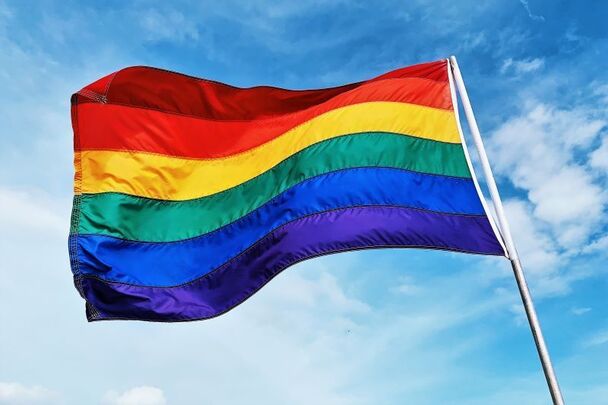Ireland has joined 16 other EU nations in a joint statement today, Tuesday, May 27, signalling their concern about anti-LGBTIQ+ legislation in Hungary.
"We are deeply concerned by recent legislative and constitutional amendments infringing on the fundamental rights of LGBTIQ+ persons which were adopted by the Hungarian Parliament on 18 March and 14 April 2025 following other anti-LGBTIQ+ legislation already introduced in previous years," the joint statement says.
"Under the pretext of child protection, these legislative amendments allow fines to be imposed on participants and organisers of events, such as the annual Pride celebrations.
"The amendments also allow for facial recognition software to be used at such events, and for banning such events.
"We are concerned by the implications of these measures on freedom of expression, the right to peaceful assembly, and the right to privacy.
"We are highly alarmed by these developments, which run contrary to the fundamental values of human dignity, freedom, equality, and respect for human rights, as laid down in Article 2 of the Treaty on European Union.
"Respecting and protecting the human rights and fundamental freedoms of all people, including LGBTIQ+ persons, is inherent in being part of the European family. This is our responsibility and shared commitment of the member states and the European institutions.
"We therefore call upon Hungary to revise these measures, to ensure the human rights and fundamental freedoms of all its citizens are respected and protected, thus complying with its international obligations.
"We share the concern expressed by the European Commission in this regard and call on the Commission to expeditiously make full use of the rule of law toolbox at its disposal in case these measures are not revised accordingly."
Ireland joined Austria, Belgium, Czechia, Denmark, Estonia, Finland, France, Germany, Latvia, Lithuania, Luxembourg, the Netherlands, Portugal, Slovenia, Spain, and Sweden in the joint declaration.
The joint declaration was issued on Tuesday ahead of a meeting of the General Affairs Council in Brussels.
During the meeting, Ministers, including Ireland's Minister of State for European Affairs and Defence, Thomas Byrne TD, will hold the eighth hearing of Hungary as part of the Article 7 procedure triggered by the European Parliament’s reasoned proposal of September 2018.
Article 7 of the Treaty on European Union (TEU) deals with serious breaches of the EU's founding values, including democracy and fundamental rights.
Ahead of Tuesday's meeting, Byrne said: "Ireland is proud to join with 16 other Member States in making a Declaration on Hungary’s infringement of LGBTIQ+ rights."
Speaking to reporters in Brussels, Byrne further said: "We totally oppose what's happening in Hungary at the moment on a very, very basic level."
Byrne said the level of support for Article 7 in regards to Hungary would be further determined in Tuesday's meeting.
"I think there is growing frustration with Hungary in general," he told reporters.
"I mean, obviously, there are very basic issues with rule of law and fundamental issues in that country. That's a real problem."
However, János Bóka, Hungary's Minister for European Union Affairs, told reporters in Brussels: “There is no such thing in Hungary as a Pride ban.
"Today's hearing will allow me the opportunity to explain to my colleagues the constitutional and the legal framework.
“I hope that after these discussions, my colleagues around the table will walk out with a more nuanced view on the Hungarian legislation.”
The Associated Press previously reported that on March 18, Hungarian legislators approved a bill that "amends Hungary’s law on assembly to make it an offense to hold or attend events that violate Hungary’s contentious 'child protection' legislation, which prohibits the 'depiction or promotion' of homosexuality to minors under 18.
"Attending a prohibited event will carry fines up to 200,000 Hungarian forints ($546), which the state must forward to 'child protection,' according to the text of the law. Authorities may use facial recognition tools to identify individuals attending a prohibited event."
Responding at the time, Tánaiste Simon Harris said Ireland will "continue to strongly support the LGBTQ+ community in Hungary."
Later, on April 14, Hungary’s parliament passed an amendment to its constitution that allows the government to ban public events by LGBTQ+ communities.
Earlier, in June 2021, Ireland and 16 other EU nations formally expressed their "grave concern" regarding Hungarian legislation that introduced a prohibition of the 'portrayal and the promotion of gender identity different from sex at birth, the change of sex and homosexuality' for persons under 18."
The 17 EU nations said at the time that the amendments "discriminate against LGBTIQ persons and violate the right to freedom of expression under the pretext of protecting children."




Comments